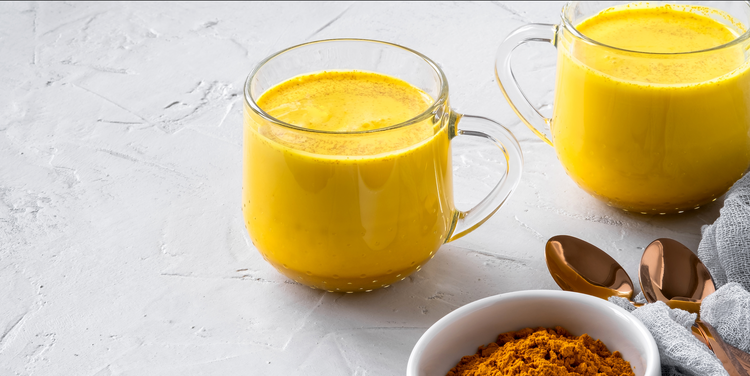Centuries old wisdom + modern science!
The use of turmeric dates back over 4000 years.
Despite popular belief, turmeric is not a root, its a Rhizome, which means it's like a stem of a plant but it grows under ground. Turmeric is a herbaceous (no woody stem above the ground), perennial plant (any plant that persists for several years) belonging to the ginger family.
In Sanskrit (an ancient Indo-European language of India), turmeric has at least 53 different names including jayanti (one that wins over diseases), rabhangavasa (which dissolves fat) & vishagni (killer of poison).
Of all the plants, turmeric has one of the most high quality double blind controlled placebo studies. There are around 3000 publications within the last 25 years. The two big areas of study are inflammation and cancer. Turmeric has virtually no serious major side effects.
There are hundreds of vital nutrients in turmeric, including the important bioactive compound curcumin. Consuming turmeric in its wholefood form ensures you consume the whole plant, not just one of the important components.
Let's refer to turmeric in its wholefood form with all its vital nutrients “The Turmeric family". When we extract just one of the vital members (like curcumin extract) from "The Turmeric Family", then it's not in its wholefood form anymore. The extract allows us to magnify the effects, which must surely be a good thing when used for its evidence-based purpose (such as helping with inflammation). However, is it possible that there could be many benefits in "The Turmeric Family" that science may not have even discovered yet?
The Turmeric Family Metaphor
So when “The Turmeric family” shows up to a party, it's lively and fun! There’s music, the party is alive, you experience all the personalities of "The Turmeric Family". When an extract shows up, it's great, but after some time it's like, hey curcumin where's the rest of the happy family? Could there be a reason that nature has all the nutrients together? So, balance what we know through science and remember to also include plants in their wholefood forms.
Tips:
Black pepper increases absorption of turmeric by 2000%! We only use fine ground high quality organic black pepper in our products.
Phytonutrients like curcumin are fat soluble, so just a little bit of fat can help increase absorption of these beneficial compounds. Try adding a little coconut oil or MCT oil.
“Turmeric is good for virtually everything!” Dr Eric Berg DC
Studies have shown that Turmeric may offer the following benefits:
- Powerhouse anti inflammatory - reduces inflammation including muscle soreness.
- High anti-oxidant protection.
- Adaptogen - helping your body adapt to stress, depression, anxiety, mood and cognitive disorders
- Brain and nervous system protection, which may help prevent Alzheimer’s, Parkinson’s and other neurodegenerative disorders and decrease formation of plaque in the brain
- Lower blood pressure, decrease arterial sclerosis and clogged arteries
- Protect the inner lining of the arteries that’s vulnerable to inflammation
- May help with dermatitis and psoriasis
- Protect the liver from fat formation and inflammation
- Improve digestion and support gut mucosal lining
- Curcumin targets DNA to help repair and protect DNA from free radical damage
- Helps support the endocrine system and makes insulin more sensitive
Resources:
https://www.ncbi.nlm.nih.gov/books/NBK92752/
https://www.fxmedicine.com.au/blog-post/nutrients-detoxification
https://health.clevelandclinic.org/turmeric-health-benefits/
Turmeric is good for virtually everything!
The statements made on this website have not been evaluated by the FDA (U.S. Food & Drug Administration). The products sold on this website are not intended to diagnose, treat, cure, or prevent any disease. The information provided by this website or this company is not a substitute for a face-to-face consultation with your healthcare physician, and should not be construed as individual medical advice.




